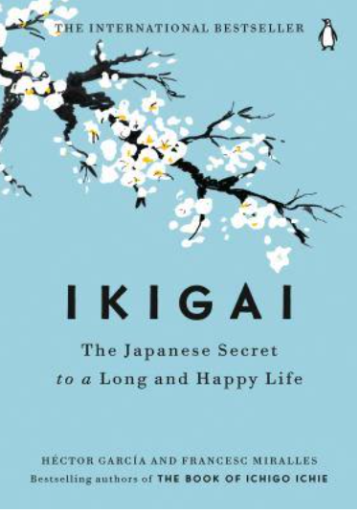The path to mindfulness and meaning in student life
In the bustling corridors of academic life, where deadlines are always approaching and responsibilities accumulate, it is normal for students to feel overwhelmed. In their search for purpose and fulfillment amidst such chaos, the Japanese “ikigai” concept offers hope. Héctor García and Francesc Miralles, in their enlightening book “Ikigai: The Japanese Secret to a Long and Happy Life,” explore this profound idea, providing a roadmap for those seeking a more contented and purpose-driven existence in daily life.
At its core, ikigai is about finding joy in life through purpose. It is that which gets you up in the morning and keeps you going through the day. For students, discovering their ikigai can transform their academic journey from a mere pursuit of grades into a passionate quest for knowledge and self-improvement. García and Miralles describe ikigai as the happiness of always being busy, not with burdensome activities, but with tasks that fulfill us. This idea can be particularly liberating for students who often struggle to accomplish multiple tasks at a time.
In the pursuit of academic and career goals, it is crucial for students to practice mindfulness. Mindfulness, the art of being present and fully engaged with the moment, aligns perfectly with the principles of ikigai. It allows students to focus on their studies not just as a means to an end, but as a path to personal development. The authors suggest that to find happiness, we must find ourselves first, and that can only happen in the stillness and solitude of the present moment. By encouraging mindfulness, ikigai fosters a learning environment where students are more aware of their actions, thoughts, and feelings, enhancing both their academic performance and personal well-being.
The journey to finding one’s ikigai is deeply intertwined with the search for meaning. For students, this means engaging in activities that not only challenge them intellectually but also resonate with their values and passions. García and Miralles assert that ikigai is hidden in our daily lives, and we just need to seize that. This could be participating in a research project that addresses real-world issues, joining clubs or student organizations that align with personal interests, or tutoring peers, which also enriches the tutor’s understanding and appreciation of the subject matter.
Academic life is fraught with challenges and setbacks. ikigai teaches us to view failures not as overwhelming obstacles but as opportunities for growth. The authors of the book emphasize resilience, a key component of ikigai, which can be particularly empowering for students facing academic challenges. They argue that ikigai gives us the resilience to see through projects and situations we start and to move forward when we encounter setbacks. This perspective encourages students to persevere, knowing that each failure is a step closer to discovering their true potential.
Integrating the concept of ikigai into student life can start with simple steps:
- Regularly take time to reflect on what activities make us feel most alive and connected. These reflections can guide course selections, extracurricular and experiential learning engagements, volunteer work and career choices.
- Set goals that align with personal values and interests, not just external expectations. This alignment brings a sense of purpose and motivation.
- Connect with others who share similar interests or challenges. A community can provide support and inspire new ideas, deepening one’s sense of belonging and purpose.
For students navigating the complexities of academia, ikigai offers more than a strategy for academic success—it offers a way to live authentically and joyfully. As García and Miralles conclude, finding one’s ikigai is an ongoing journey, not a destination. It is about continually aligning one’s academic pursuits and personal growth with what is truly meaningful. In a challenging but enriching environment of academia, embracing ikigai can transform the academic experience into a fulfilling adventure in personal and intellectual development. By fostering mindfulness, encouraging a search for meaning, and teaching resilience, ikigai not only prepares students for their future careers but also for a satisfying and happy life.
